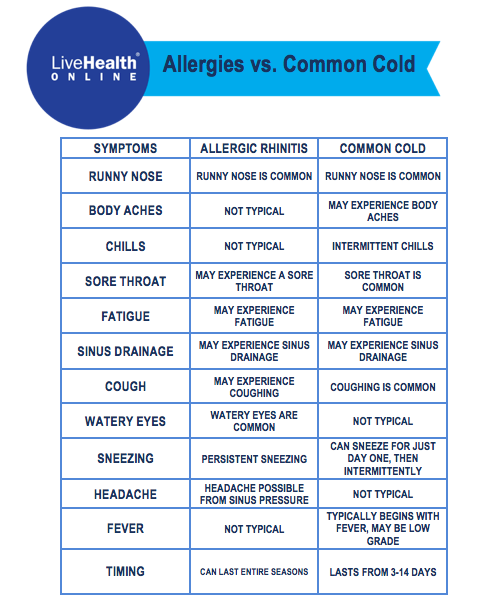
You’ve got the sniffles, but you’re not sure if you’re coming down with a cold or if allergies are in the air again. While a runny nose is common to both ailments, here are other symptoms that can help you tell the difference:
Colds last anywhere from three days to two weeks, perhaps even a few more days if your system is removing leftover congestion at a slower pace. Allergies last for as long as your body is exposed to the allergen.
Typical cold symptoms—in addition to a runny nose—include coughing, a sore throat and, sometimes, aching body parts. Colds can begin with a low-grade fever and you might get the chills.
With a cold, you usually don’t get a headache. Sneezing might start on day one and then happen intermittently.
Typical allergy symptoms include itchy and watery eyes. You may sometimes have a sore throat or cough with allergies, but not as severely as these symptoms are when due to a cold. With an allergy, you might get a headache from sinus pressure. Sneezing is persistent. Fever is unlikely to be experienced with allergies.
Precautions for preventing a cold include washing your hands often, limiting contact between your hands and face, and staying away from people who have colds.
Precautions for preventing allergies include reducing exposure to allergens. Stay aware of factors like the pollen count or the presence of pets in an environment.
Both colds and allergies are often treated with antihistamines and decongestants. Doctors may prescribe additional treatments for allergies, like allergy shots or nasal steroids.
If you have questions about cold viruses, allergies or any other illnesses, reach out to a doctor 24/7 through the LiveHealth Online website or by using the LiveHealth Online app from the App Store or on Google Play.

Recommended Posts


